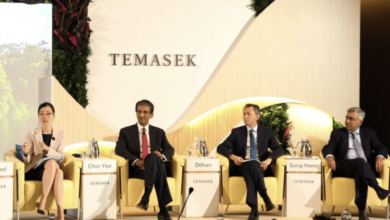Singapore-based StratifiCare received ADB Ventures led seed funding

StratifiCare, a Singapore-based predictive medical diagnostics business, has received an initial investment of S$1 million (US $729,000) from ADB Ventures and Sprout, an early-stage venture capital firm.
Jeffrey Tiong, CEO of PatSnap, and Quek Siu Rui, CEO of Carousell, are among the other investors.
StratifiCare will establish up experimental production facilities with the new funds. It will also conduct clinical studies in disease-affected Asian countries for its Dengue prediction test, StratifiDen.
StratifiDen will also be tested in the Philippines, Sri Lanka, and Vietnam in collaboration with clinical partners.
“This could have a very significant impact on the way Dengue treatment is managed in Asia and beyond,” said Yichu Zhang, investment associate at ADB Ventures.
StratifiCare, founded in 2015 by CEO Anthony Chua and pals, provides a wide variety of predictive in-vitro diagnostics (IVD) technologies to support personalized treatment. Each solution, according to the firm, can minimise hospital (re)admissions, reduce the use of inefficient therapies, and improve patient outcomes.
StratifiDen, according to StratifiCare, can aid clinicians in recognising serious illness complications (such as internal bleeding) and the hospitalisation needs of Dengue patients by detecting the concentrations of certain proteins in the patient’s blood.
Global warming, rising urbanization, and mosquito geographic expansion, according to collaborative research published in 2019 by four American institutions, would put one billion more people in temperate zones at risk of Dengue illness by 2080.
Dengue fever is also estimated to affect 390 million individuals each year, according to the World Health Organization (WHO).
Given that only about 5% of Dengue patients who are hospitalised develop severe complications, StratifiDen helps ensure that hospital resources are reserved for severe cases during major outbreaks, while also reducing the financial burdens placed on Dengue patients and their families as a result of unnecessary hospitalisation.
StratifiDen adoption will save Dengue-affected impoverished countries throughout the globe about US $7.6 billion in direct medical costs every year, according to data from a University of Washington health economics study, the business claims.
“StratifiDen ensures that scarce hospital resources are reserved for severe Dengue patients during large Dengue outbreaks,” said StratifiCare co-founder and CEO Dr. Anthony Chua.
Aside from the Dengue prediction test, StratifiCare has expanded its capabilities to include cancer medical diagnostic tests, utilizing the expertise and infrastructure developed for StratifiDen.
The medtech industry in Asia-Pacific is anticipated to grow to over US$133 billion in 2020, up from US $88 billion in 2015, overtaking the European Union as the world’s second-largest market, according to McKinsey research.
According to Industry Insights Research, the Medtech industry contributed S$13 billion (US$9.4 billion) to Singapore’s GDP.
With recent Neuroglee Therapeutics, One BioMed, and Leben Care acquisitions, the number of domestic Medtech businesses in Singapore has climbed from 100 in 2014 to over 250 in 2018.





